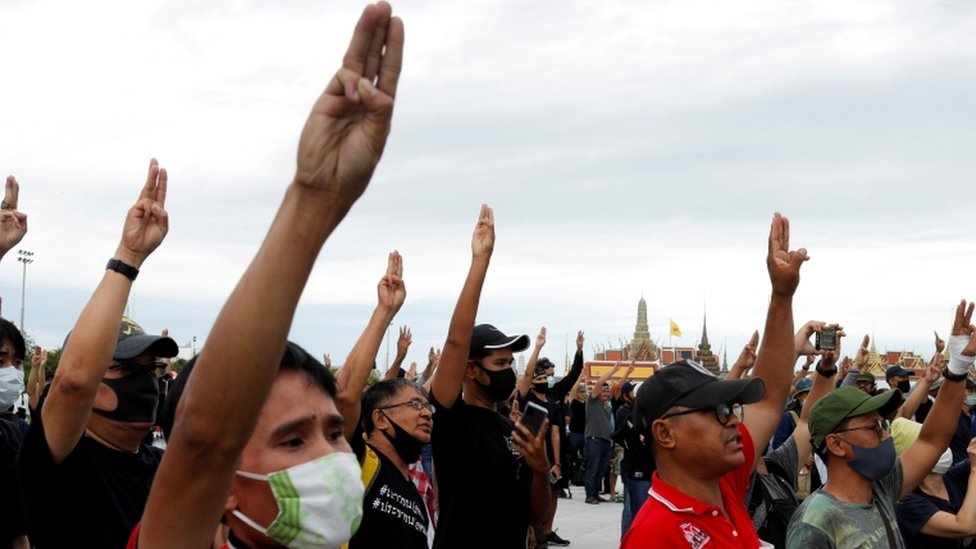
Thailand’s student-led democracy movement has been calling for the resignation of Prime Minister Prayuth Chan-ocha. The former army chief had seized power in a 2014 coup before he was appointed as premier after controversial elections last year.
In a televised announcement the government said urgent measures were needed to “maintain peace and order”.
It justified the orders partly on the grounds of some protesters disturbing a royal motorcade during a mass march in Bangkok on Wednesday. The protests have widened in recent months to also call for curbs on the king’s powers.
The emergency measures came into effect at 04:00 local time on Thursday (21:00 GMT on Wednesday).
More than 20 people have been arrested including three protest leaders.
The decree, announced on state television overnight, said protesters had intended to instigate an incident leading to “chaos and incitement of conflict and public disorder”.
It cited the “obstruction to the royal motorcade” as one of the reasons for its imposition. Some protesters on Wednesday had raised the three-finger salute, a symbol of the movement.

In addition to limiting gatherings to four people, the decree puts restrictions on the media, prohibiting the publication of news “that could create fear or intentionally distort information, creating misunderstanding that will affect national security or peace and order”.
Shortly after the decree took effect, Thai riot police cleared protesters from outside the prime minister’s office. Some tried to resist, using makeshift barricades, but they were moved back.
The growing student-led democracy movement has become the greatest challenge in years to Thailand’s ruling establishment.
Protesters are demanding the resignation of Mr Prayuth, following his election in the controversial 2019 polls. They also seek the rewriting of the constitution, whose amendments in recent years have been disputed, as well as an end to the harassment of state critics. Mr Prayuth rejects accusations the electoral laws were fixed in his favour.
Since August, the calls for change have grown to include reform to the monarchy, sparking unprecedented public discussion of an institution long shielded from criticism by law.




